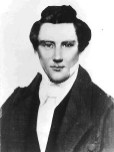Criticism
Critics claim that Joseph Smith's religious ideas derived in part from Kabbalah, a type of (usually Jewish) mysticism.
Source(s) of the Criticism
- John L. Brooke, The Refiner's Fire: The Making of Mormon Cosmology, 1644-1844 (Cambridge University Press, 1996), 1–.
- Lance S. Owens, "Joseph Smith and Kabbalah: The Occult Connection," Dialogue 27/3 (1994): 117–194.
Response
Extensive reviews of the works which purport to find this strain in Joseph Smith's thought are available (see below).
It is difficult to prove a negative—how might we prove that Joseph's ideas were not from Kabbalah?
Rather, we can consider a number of the problems with this intellectual construct, and then ask if there are not perhaps better ways to understand Joseph's thought.
One review wrote that:
- Throughout his book, Brooke's approach might be characterized as scholarship by adjective (see, e.g., pp. 240, 294). Time and again, he places the adjective "hermetic" or "alchemical" before a noun relating to Mormonism and then proceeds as if the mere act of juxtaposing the two terms—essentially without argument—had established that the ill-defined adjective really applies. He holds that "certainly Joseph Smith was predisposed to a hermetic interpretation of sacred history and processes from his boyhood" (p. 208). But what does this mean? What is a "hermetic interpretation" here? Although Brooke himself seems to have a predisposition to a "hermetic interpretation" of almost everything in sight, Joseph Smith and his followers undoubtedly did not have the remotest idea of what hermeticism was.
- Simply labeling Mormon celestial marriage "hermetic" and "alchemical" (as on pp. 214, 257-58, 281) does not make it such. Frequently, in a kind of fallacy of misplaced concretion, Brooke is misled by his own metaphors to misread nineteenth-century realities (as in his use of the terms "alchemy" and "transmutation" in discussing the Kirtland Bank [pp. 222-23; cf. 227-28]), and even twentieth-century Utah (as when he describes modern financial scams in Utah as "alchemical" [p. 299]). On at least one occasion, Fawn Brodie's (twentieth-century) portrayal of Sidney Rigdon as engaged in a metaphorical "witchhunt" inspires Brooke—evidently by sheer word association—to claim that Joseph Smith (!) saw himself as literally surrounded by witches (p. 230).[1]
Endnotes
FAIR wiki articles
Template:MagicWiki
FAIR web site
Template:MagicFAIR
External links
- Davis Bitton, "Review of John L. Brooke, The Refiner’s Fire: the Making of Mormon Cosmology, 1644-1844," Brigham Young University Studies 34 no. 4 (1994–95), 182–192. PDF link
- William J. Hamblin, "'Everything Is Everything': Was Joseph Smith Influenced by Kabbalah? Review of Joseph Smith and Kabbalah: The Occult Connection by Lance S. Owens," FARMS Review of Books 8/2 (1996): 251–325. off-site
- William J. Hamblin, Daniel C. Peterson, and George L. Mitton, "Review of John L. Brooke, The Refiner’s Fire: the Making of Mormon Cosmology, 1644-1844," Brigham Young University Studies 34 no. 4 (1994–95), 167–181. PDF link
- William J. Hamblin, Daniel C. Peterson, and George L. Mitton, "Mormon in the Fiery Furnace Or, Loftes Tryk Goes to Cambridge] (Review of The Refiner's Fire: The Making of Mormon Cosmology, 1644-1844 by John L. Brooke)," FARMS Review of Books 6/2 (1994): 3–58. off-site
Shorter version of BYU Studies paper above; discusses Hermeticism; Masonry
Printed material


